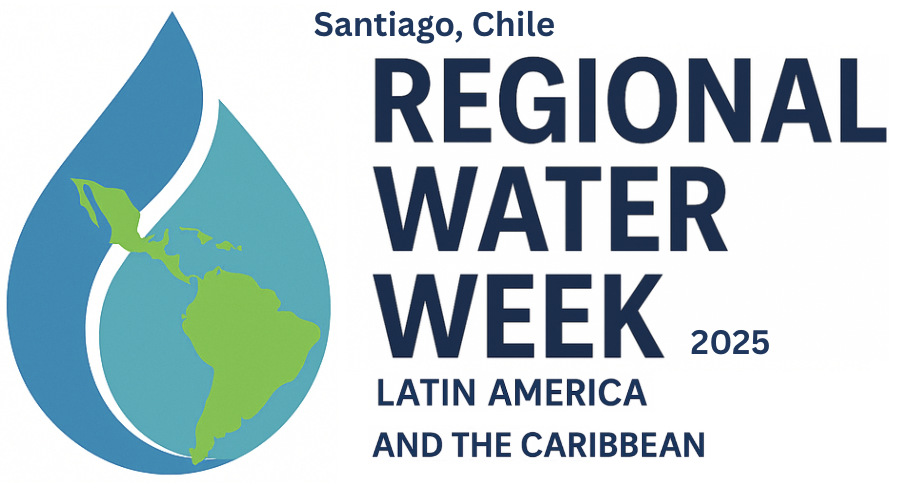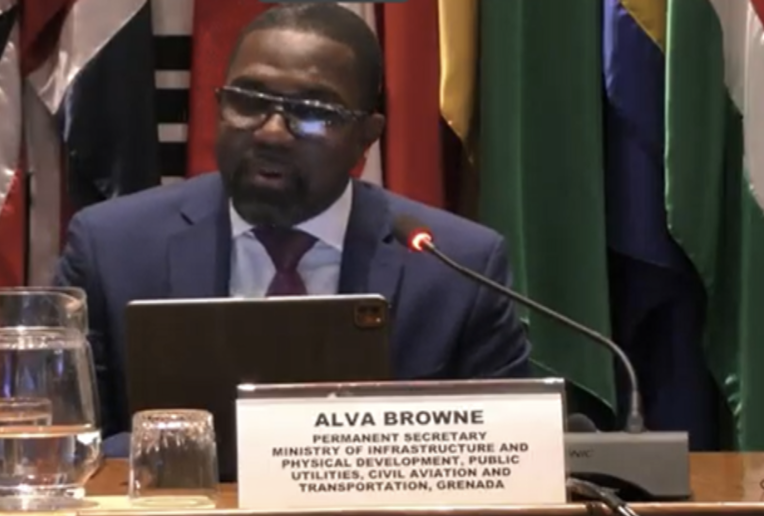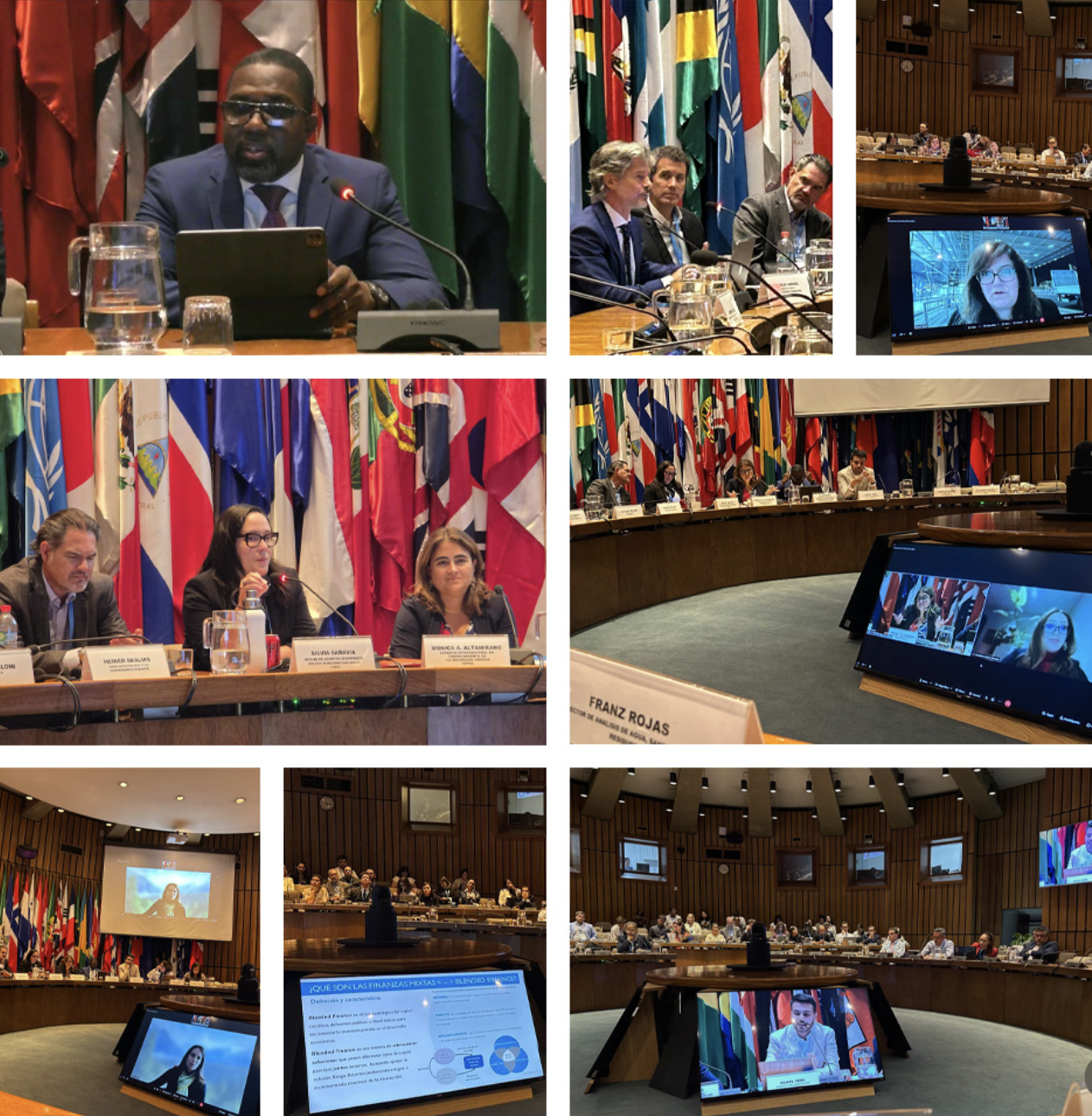Commemoration of the Inter-American Water Day at ECLAC: data to guide decisions and alliances to accelerate SDG 6
Work area(s)
Topic(s)
In the Raúl Prebisch Room, ECLAC, AIDIS and PAHO/WHO brought together authorities, youth, academia and civil society to transform evidence into practical agreements: fairer tariffs, safe sanitation, strengthening of IWRM and cooperation for investments that improve continuity, quality and efficiency of the service.

Opening: Water is health, equity and the future
The afternoon began with the motto: water is not just a service, it is health, equity, and the future. In the Raúl Prebisch Room at ECLAC, representatives from AIDIS, PAHO/WHO, and the Natural Resources Division welcomed a diverse audience—technicians, youth, civil society, and the public sector—to discuss, with data in hand and concrete proposals, how to accelerate the fulfillment of the human right to water in Latin America and the Caribbean.
AIDIS President Rolando Chamy opened the meeting by emphasizing the role of engineering and public management in closing gaps in access and quality. Rayén Quiroga , head of the Water and Biodiversity Unit at the DRN (National Directorate of Natural Resources), connected this urgency to the regional agenda for water sustainability and the mandate to leave no one behind. From the PAHO (Pan American Health Organization), Daniel Buss noted that every advance in water and sanitation translates into prevention: fewer illnesses, lower costs for health systems, and greater well-being for communities.
Within that framework, the central moment arrived, with the presentation of the Regional Water Profile – CEPALSTAT , by René Salgado, an official from the Natural Resources Division.
He pointed out that the Regional Water Profile puts SDG 6 on the map with important data: access to drinking water and sanitation, service quality, efficiency of use, and pressure on the resource. Its distinctive contribution is examining water through a distributive lens : by analyzing by income quintiles , it reveals a painful regressivity —the poorest households allocate a proportionally larger share of their budget to water and sanitation—and paves the way for fairer tariff policies .
With clear indicators— risk-free managed access , wastewater treatment , water stress , IWRM , and ODA —the profile ceases to be a mere set of figures and becomes a roadmap . And it shows that it can be done: Costa Rica (2024) made progress with tariff standardization , increasing blocks , a social tariff , and an environmental charge aimed at conserving watersheds .
The conclusion is straightforward: with this evidence, countries can design progressive tariffs , activate efficiency incentives , and direct funding toward protecting water sources. Less regressivity, greater equity, and a healthier water cycle for people and communities.
Round table: from evidence to solutions
The conversation outlined a clear roadmap: Martín Coria (CWS LAC) emphasized that partnerships and social investment are the vehicle for delivering solutions where they are most needed; building on this, Marissa Mar Pecero (Women in Water LAC) demonstrated how well-designed communication and education generate legitimacy for fair and understandable tariff reforms. Meanwhile, Gabriela Calderón (Groundwater Youth Network) focused on groundwater , proposing monitoring, citizen science, and youth participation to protect the resource that sustains cities and productive sectors. Finally, Elba Vivanco (AIDIS) linked the “what” with the “how”: regulatory standardization , performance-based contracts , and portfolios of executable projects to ensure continuity, service quality, and financial sustainability .
Finally, Elizabeth Coble from the Natural Resources Division and moderator of the session , summarized the messages presented in three main ideas: (1) water-health-equity as a starting point; (2) having reliable data to guide decision-making; and (3) establishing as priorities the review of tariff structures with criteria of progressivity and social protection; in order to promote safe sanitation programs and effective treatment; strengthen governance with Integrated Water Resources Management (IWRM) and open data; and scale up partnerships for investment and technical cooperation at the regional level.
Related content

Regional Water Week for Latin America and the Caribbean – Santiago, Chile 2025
The Economic Commission for Latin America and the Caribbean (ECLAC), together with the Conference of Ibero-American Water Directors and Authorities (CODIA) and the Government of Chile, through the…

The Caribbean’s playbook for closing the water implementation gap at Regional Water Week 2025
Santiago, 8 October 2025 — In Block 2, “Climate Finance for Water Security,” within the session “Closing the Implementation Gap for Water Security in LAC (Latin America and the…

Session: Closing the Implementation and Financing Gap for Water Security in Latin America and the Caribbean – Regional Water Week 2025
During the 2025 Regional Water Week, ECLAC and its strategic partners convened the special session “Closing the Implementation and Financing Gap for Water Security in Latin America and the…